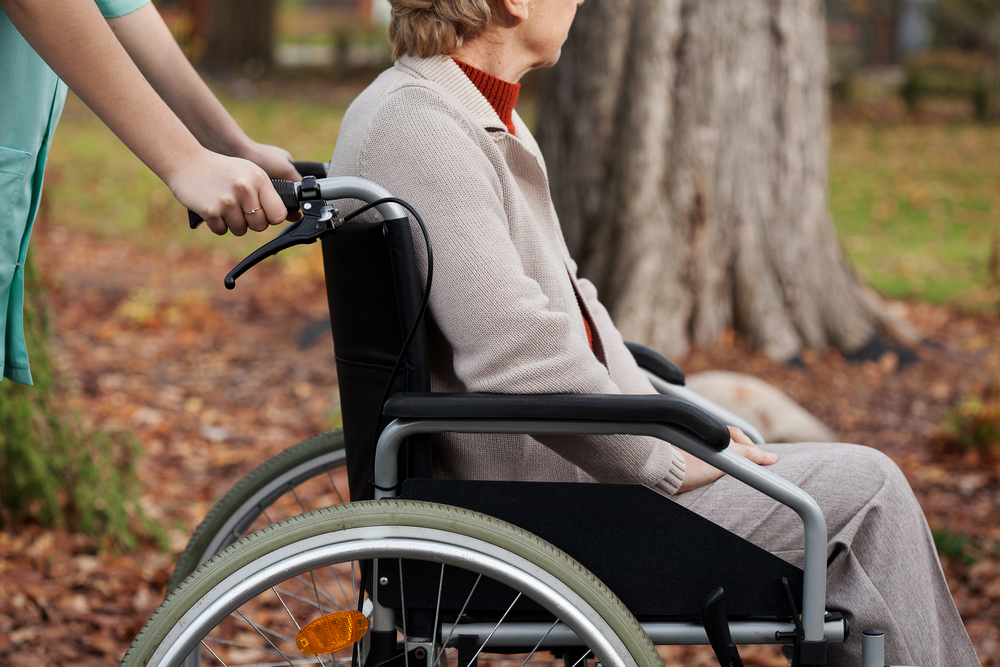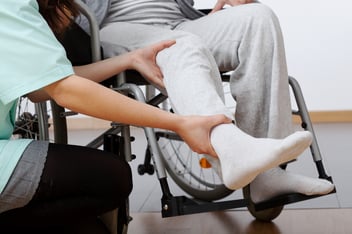Discover how hospice services at home can provide essential support for caregivers and their loved ones.
The Importance of Caregivers in Hospice Care
Caregivers play a crucial role in hospice care, providing physical, emotional, and spiritual support to their loved ones during their final stages of life. They offer comfort, assistance with daily activities, and companionship to ensure their loved ones have the best possible quality of life during this challenging time. Caregivers are often family members or close friends who are dedicated to providing compassionate care and ensuring their loved one's comfort and dignity.
In addition to providing direct care, caregivers also serve as advocates for their loved ones, communicating their needs and preferences to the hospice care team. They play a vital role in decision-making and ensuring that their loved ones' wishes are respected and honored. Caregivers are the primary source of support and continuity for their loved ones, creating a sense of familiarity and reassurance during a time of uncertainty.
Understanding Hospice Services at Home
Hospice services at home are designed to provide comprehensive care and support to individuals with life-limiting illnesses in the comfort of their own homes. This option allows patients to remain in a familiar and supportive environment, surrounded by their loved ones. Hospice care teams, including doctors, nurses, social workers, and spiritual counselors, work together to address the physical, emotional, and spiritual needs of patients and their families.
Hospice services at home include pain and symptom management, assistance with daily activities, emotional and spiritual support, and coordination of medical equipment and supplies. The goal is to ensure that patients receive the highest quality of care while maintaining their dignity and enhancing their quality of life. By providing care at home, hospice services help create a sense of peace, comfort, and familiarity for both patients and their caregivers.
Benefits of Hospice Services at Home for Caregivers
Hospice services at home offer numerous benefits for caregivers. One of the key advantages is the opportunity to provide care in a familiar and comfortable environment. Caregivers can create a personalized and nurturing space for their loved ones, surrounded by familiar belongings and memories. This can help alleviate stress and anxiety for both the patient and the caregiver.
Additionally, hospice services at home provide caregivers with access to a multidisciplinary care team. This team consists of healthcare professionals who specialize in end-of-life care and are trained to address the unique needs of patients with life-limiting illnesses. Caregivers can benefit from the expertise and support of these professionals, receiving guidance on pain management, symptom control, emotional support, and caregiver self-care.
Furthermore, hospice services at home can help reduce the financial burden on caregivers. By receiving care at home, caregivers can avoid the expenses associated with hospital stays or long-term care facilities. This can provide significant relief, allowing caregivers to focus on providing care and support for their loved ones without the added stress of financial strain.
How to Arrange for Hospice Services at Home
Arranging hospice services at home involves several steps to ensure a smooth transition and comprehensive care for the patient and caregiver. The first step is to discuss hospice care with the patient's healthcare provider, who can provide information and guidance and write a physician's order for hospice to "evaluate and treat" if the patient is deemed appropriate. It is important to have open and honest conversations about the patient's wishes, goals, and expectations for their end-of-life care.
Once the decision for hospice care at home is made, the next step is to contact a hospice provider or agency. They will conduct an assessment to determine the patient's eligibility for hospice care and develop a personalized care plan. The care plan will outline the services needed, including medical equipment, medications, and support from the hospice care team.
After the care plan is established, the hospice agency will coordinate with the patient's healthcare provider and other relevant professionals to ensure a seamless transition of care. This may involve arranging for medical equipment and supplies, scheduling visits from the hospice care team, and providing education and training for the caregiver.
Throughout the hospice care journey, caregivers can actively participate in the care planning and decision-making process. It is essential to communicate any concerns, questions, or changes in the patient's condition to the hospice care team. They are there to provide guidance, support, and reassurance every step of the way.
Supportive Resources for Caregivers
Caring for a loved one in hospice care can be emotionally and physically challenging. It is important for caregivers to prioritize self-care and seek support when needed. Hospice services at home often provide access to a range of supportive resources to help caregivers navigate this journey.
Support groups and counseling services are available to caregivers, offering a safe space to share experiences, express emotions, and seek guidance from others who are going through similar situations. These support systems can provide a sense of validation, understanding, and community.
In addition to emotional support, caregivers can also benefit from respite care services. Respite care allows caregivers to take a break from their caregiving responsibilities, giving them time to rest, recharge, and attend to their own needs. This temporary relief can help prevent caregiver burnout and ensure their well-being.
Caregivers can also explore educational resources and training programs offered by hospice services at home. These resources can provide valuable information on caregiving techniques, symptom management, and end-of-life planning. By equipping caregivers with knowledge and skills, they can feel more confident and empowered in their caregiving role.
Remember, caregivers are not alone in this journey. Hospice services at home are committed to supporting caregivers and ensuring their well-being. By accessing these supportive resources, caregivers can enhance their ability to provide compassionate care and find solace in knowing they are part of a caring community.




.png?width=352&name=Untitled%20design%20(2).png)